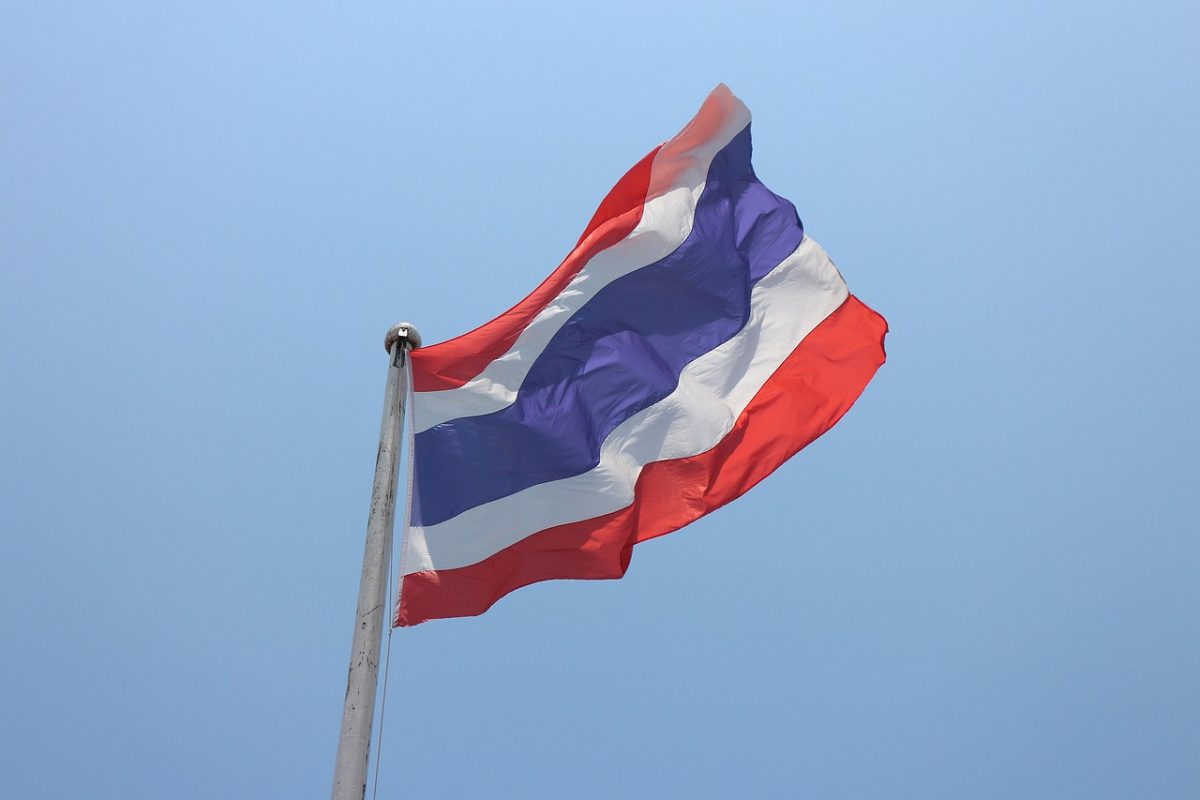Respectability Politics Amongst African-American Women
This past summer I was honored to be a scholar of an organization called LEDA (Leadership Enterprise for a Diverse America) at Princeton University. This 7-week program consisted of living the life of an ivy-league student while managing how to live on my own. It helped me prepare for life after high school. At LEDA, one of our assignments for our writing class was to come up with a question that you are passionate about and conduct a research paper to help answer or bring more awareness to the question.
For my research paper, I raised the question, “African-American Woman: Who gets credit/remembered?” My research paper is below. Awareness needs to be brought to this issue because it is very important for people to know everyone who has and will make a difference in the world, not just those who are famous.
African-American Women: Who Gets Credit/Remembered?
In the past, when one hears the term African-American women, the first thoughts that might came into mind were: weak, housewives, voiceless, powerless. Since the Civil Rights Movement-when African-American women were brought into recognition-there have been many incidents where these women were voiceless in their own lives and were not given the credit they’ve deserved. We hear a lot about Rosa Parks, who is most famously known for not giving up her seat during the Civil Rights Movement. We hear a lot about Oprah, who is most famously known for her humanitarian contributions to American and other parts of the world, along with being one of the richest women in the world. We hear about Beyonce, who is most famously known for being one of the greatest entertainers of all time. What we don’t hear about are African-American women who made just of a big accomplishment in the past and present as did the women I’ve just mentioned. The ultimate question that comes into mind is: Why are certain African-American women shown and recognized throughout the past and present and others are not? The term that can help understand this question is respectability politics regarding African-American women.
In her article, “BLACK WOMEN EMERGE FROM HISTORY’S NEGLECT,” Barbara Gamarekian gives the overall history of exactly what a typical African-American woman had to deal with and the struggles of trying to find her voice in a world full of people who felt as if she didn’t have one. Gamarekian discusses the history of African-American women started back from the Civil Rights Movement. As noticed today, African-American women have been kept in the shadows throughout history. They have not been properly introduced in history until roughly the 1960’s regarding to the Civil Rights Movement. Throughout history, African-American women have been visualized as the caregivers and housewives of their families. They were not allowed to work, have a voice, or take action regarding their well-being and common good. Due to this, they have been mentally, emotionally, and physically abused. Only in recent years have people tried to dig up the history and voices of these women. The two main focuses regarding African-American women’s history are the Feminist Movement and Civil Rights Movement. Black women today are looking at themselves with a more distinct black voice because what they went through needs to be heard. Especially with what’s going on today, their opinions and experiences needs to be told and not hidden. This is very important because African-American women have been here throughout history; they just have never been visible to the eye. Their knowledge and power can change a world only if their voices and actions come to light. Also, there are certain black women in history that are known today; including Harriet Tubman, Rosa Parks, and Ida Wells Barnett. But, what about the others that weren’t heard of who had just enough impact on history? These women include; Lucy Terry (the first African-American woman poet in America), or Mary Beard, who was the first to focus on women’s history? Mary was the one to propose the idea of establishing the World Center for Women’s Archives. There are still many gaps in Black women’s history.
The specific connection between this article and my question is that it gives an overview of key components that I will be discussing in my presentation. Specifically, it discusses why there is a gap in history regarding African-American women. That is because of the lack of resources African-American were given in history to document their experiences and feelings. With no resources, they had no access to anything that would give them the ability to write or draw out their life stories. This source is helpful in my presentation by highlighting key events that happened that made it hard to fill in the gaps of Black women’s history. This article also would help introduce some questions I will later address in my presentation. Those questions include: Who gets remembered and credited in history? What key role does respectability politics play in African-American women’s lives? This article helps those questions spark because throughout the article it asked why we know about certain African-American women and not the others who had just of a great impact on history.
By stating the history of African-American women and exactly who is remembered brings up questions on respectability and how big it plays in the roles of African-American women. In “Black Women’s Identity: Stereotypes, Respectability and Passionlessness,” Mahassen Mgadmi points out the concept of a black women’s identity. Compared to white women, who were taught the aspects of “true womanhood,” black women were taught just the opposite. Black women were often disgraced when it came to being a woman because of the color of their skin. Black women were seen as the mistresses, strong, dirty, worker, and seductive. Regarding respectability, black women wanted to prove to society that they were not the stereotypes people labeled on them for years. In order to do this, magazines covering Black women would dress them in appropriate and fashionable clothing. Many Black women took classes in domestic service as well. The goal was to eliminate the stereotypes that African-Americans, particularly women, were lazy, stupid, and immoral. However, in the Black community itself, problem arose because of this fight for equity and respect. There was concern of fellow African-American women properly representing these issues so there would be certain African-American women to represent their race and ethnicity. The middle-class African-American women seem the most applicable to represent their peers.
The specific connection between this source and my question is respectability politics. In this article, it goes deeper into why certain women are credited and chosen to represent their people. When choosing an African-American woman to represent their race and ethnicity, a lot is taken into consideration. A woman who is the best fit is chosen even if she is not the best fit to represent every African-American woman in the world. This is helpful because it gives the background and insight on the role respectability politics play in African-American women’s views and how it is played out.
What was new to me was finding out that African-Americans chose among themselves who is chosen as the “cover-face” of the race. This is very interesting because a middle-class women or someone who looks presentable is chosen. I don’t think this should be the case because it shows the positives of what is represented. Instead, women who works and knows the struggle should be chosen because she would have more to say on how hard it is to be a woman of color and all the things she has to go through on an everyday basis. This source agrees with the others because it goes into depth on how respectability politics work in the African-American community and goes more in depth on how a woman is chosen to represent her people
A specific quality that is looked upon regarding African-American women is their hair. Hair is one of the top features a Black woman is criticized about. It has gotten to the point that certain hairstyles represent a Black woman who is true to her roots opposed to certain hairstyles that represent a Black woman who is classy and could receive the respect from the opposite race. In “Black Hair, Still Tangles in Politics,” Catherine Saint Louis discusses the controversy around African-American women hair and how they choose to wear it. A black woman is shamed if she straightens her hair from her informal peers and shamed if she wears it in her natural element by her former peers. A woman is respected by the white supremacy if her hair is straightened. She is seen to be more classy and professional by the whites. If a black woman straightens her hair, she means business and is could be taken into a more respectable account. However, if a woman was to wear her natural hair (afro, twists, locs, and braids) then she is unprofessional. In contrast, former African-American women take that as being real and respecting their roots. Either way, an African-American woman is criticized for the way she wears her hair. Typically, straighten hair is a good thing and wearing it natural is a bad thing. Many black women today feel as if their hair choice should not be looked down upon. Hair is just a natural piece of them and they should have a say so on how they want to look. Hair is a major part of a woman’s identity and it is now seen to have a negative effect.
This article strengthens my argument that hair plays a major part in which African-American women gets credit. If you were to have straightened hair, there is a high chance you would be praised for it. Some might say you look pretty that way because your hair is tamed. On the other hand, if you were to have an afro, then you are looked down upon on for being wild and for being unprofessional. A case study that helps support this article would be the debate on First Lady Michelle Obama’s hair chooses compared to her daughter Malia’s hair. First Lady Michelle was praised for wearing her hair straighten throughout her presidential life but her daughter, Malia, was criticized for wearing twists. A Republican blog stated that she was unfit to represent America based on her hair choices. This goes to show big of a role hair has on people’s thoughts when it shouldn’t be viewed upon in such ways.
By reading this article, I learned just how serious people take a Black woman’s hair choice. Although it shouldn’t be this serious, it is. An African-American woman can’t go outside with an afro and not be shamed for it. That is like being shamed for being black! That’s not right at all. Hair is seen to be a negative thing regarding African-Americans and that shouldn’t be the case. Hair shouldn’t determine if you should be respected, treated with decency, or criticized. No black woman should be labeled because she chose to wear her hair in its natural state. I knew that hair was something that is discussed today regarding African-American women and the different types of races that chose to wear these distinct hairstyles. Now, reading this article, it opens my eyes to all of the concerns that arise from a Black woman’s hair choose.
Now, with all the sources and facts present, one can conclude that respectability politics is the vital component in regards to why there is an issue regarding why certain Black women are credited and remembered. As seen in Louis’ article, First Lady Michelle Obama was given credit for presenting herself in a respectable manner based on her hair. Because her hair was straight she was treated with her higher respect in contrast to her own daughter, Malia, who was criticized for wearing twists. People felt as if twists were not a symbol of class and due to this, Malia wasn’t seen representing America. She didn’t have “the look.” Sixty years ago, the same issue originated regarding Claudette Colvin’s arrest and why she wasn’t known as the first women being arrested during the bus boycott in Montgomery, AL. Claudette didn’t have the look. She was seen as too young and her skin was too dark. Rosa Parks turned out to be a better candidate because of her age, her light-skin, and being educated. It shouldn’t matter what color, skin complexion, education status, etc. you are in order to receive credit for your accomplishments. The two cases between Malia Obama and Claudette Colvin ties with respectability politics based on their appearances and how they were seen from the viewer’s eyes.
Now, there might be questions arising in regards to the term respectability politics relating to African-American women. With Claudette Colvin, people might feel as if she couldn’t be the face of the bus boycott because of her age and with her pregnancy directly following her arrest. This would have fed into the stereotypes that African-American women are known for getting pregnant. However, Claudette didn’t become pregnant until after her refusal of giving up her seat. Also, it shouldn’t matter whether she was pregnant or not. What matters is that she stood up for her rights and her bus refusal wasn’t planned as opposed to Rosa Parks. Further research that could help strengthen my claim could be research on other Black females who help support my claim that they go unnoticed for their accomplishments. What were their conditions and why were they not recognized in contrast to those who were during their time? Why is respectability politics such a big role in African-American women lives and image?











![Princess Peach Showtime! [My Take]](https://hillcresthawkeye.com/wp-content/uploads/2024/05/princess-peach-showtime-1200x675.webp)





















![Princess Peach Showtime! [My Take]](https://hillcresthawkeye.com/wp-content/uploads/2024/05/princess-peach-showtime-600x338.webp)






